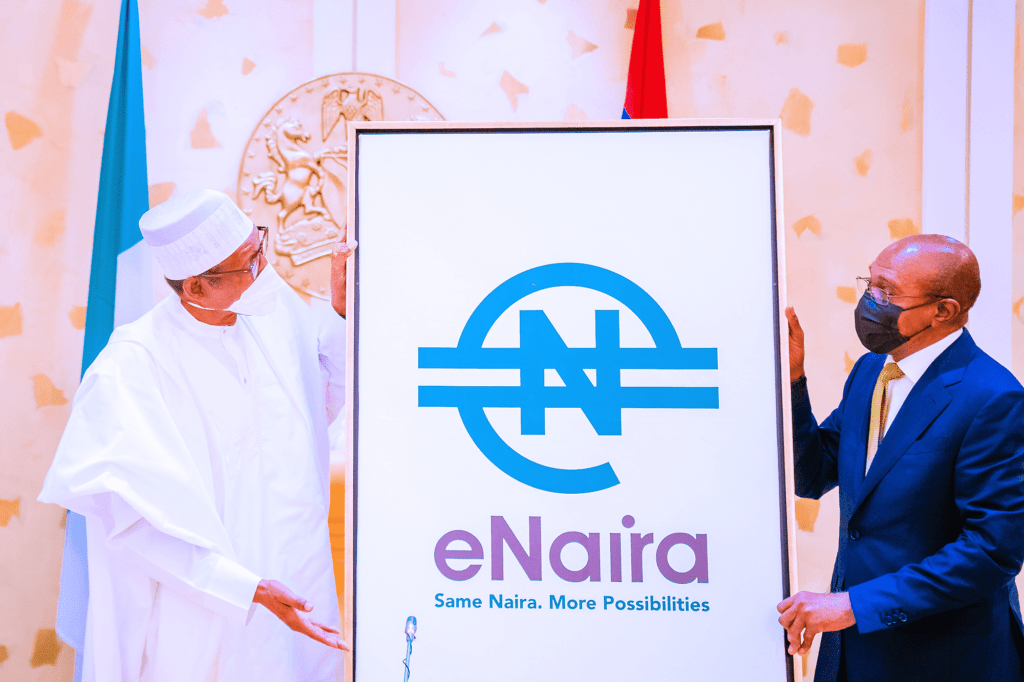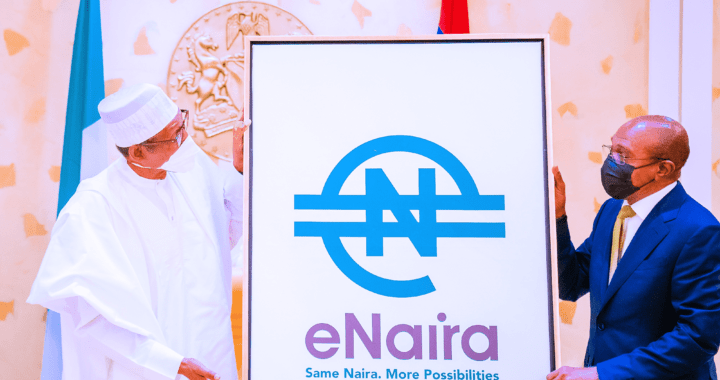
The Nigerians naira Note Launched?
Table of Contents
The launch of Nigerians Central Bank Digital Currency (CBDC), the eNaira, in October 2021 was to bring various benefits such as increased remittances, improved cross-border trade, enhanced financial inclusion, and easier welfare payments. President Muhammadu Buhari expressed optimism that the adoption of the eNaira could boost economic activities and contribute to a $29 billion increase in Nigeria’s GDP over the next decade.
However, despite these expectations, the adoption of the eNaira has faced challenges and has not gained significant traction among Nigerians. One year after its launch, the transaction volume for the eNaira stood at 700,000, with a total value of just N8 billion. Many Nigerians have been skeptical about the digital currency, viewing it as another futile digital initiative.
The situation worsened with the implementation of the Central Bank’s naira redesign policy, leading to a cash crunch and scarcity of the new naira notes. This caused frustration among Nigerians as they struggled to meet the deadline for exchanging old notes for the redesigned ones, resulting in a collapse of economic activities and rising inflation.
Challenges Faced Trying to Launch the Nigerians eNaira
The challenges faced by the eNaira and the frustration caused by the naira redesign policy highlight the complexities and difficulties associated with digital currency adoption and monetary policy changes. It underscores the need for careful planning, effective implementation, and clear communication to ensure the successful integration of new financial technologies and policies in a country like Nigeria.
The situation forced Nigerians to seek other means of payment and general transactions. While many embraced digital payments platform and neobanks like OPay, PalmPay and Kuda, others still, turned to the country’s CBDC, the eNaira for digital transactions. This new wave of adoption saw the number of eNaira wallets increase by more than 12 times to 13 million while transactions soared by 63%.
Though the digital currency witnessed significant usage amid the naira scarcity, Nigerians never really embraced it because once the CBN backtracked and injected cash back into the system, Nigerians abandoned the eNaira yet again. This has left the FG at a loss on the best way, any way at all, to drive the adoption of its digital currency

G7 commits to helping developing countries like Nigeria drive adoption
Last month, the G7 group of advanced economies expressed their commitment to assist developing countries, including Nigeria, in driving the adoption of central bank digital currencies (CBDCs). The topic was discussed during a summit held in Niigata, Japan, where finance ministers and central bank governors gathered to deliberate on financial digitization.
The joint statement released by the G7 highlighted the importance of CBDCs in the global payment system, emphasizing their potential to contribute to a trusted, stable, and transparent financial ecosystem. The statement also called for enhanced international regulation and oversight of crypto-assets, including virtual currencies.
The G7 acknowledged the ongoing efforts of the International Monetary Fund (IMF) in collaboration with international organizations and national institutions to develop a “CBDC Handbook.” This handbook is expected to provide valuable insights and guidance on the development and implementation of CBDCs, and its release is anticipated before the G7’s annual meeting.
Furthermore, the joint statement emphasized the need for comprehensive monitoring, regulation, and governance of crypto-assets. It recognized the importance of responsible innovation while addressing financial stability and prudential concerns associated with cryptocurrency activities and markets.
The G7’s commitment to supporting developing countries in adopting CBDCs reflects a global recognition of the transformative potential of digital currencies and their role in shaping the future of finance.
For the aim to be achieved, the G7 announced its commitment to implementing an appropriate regulatory and supervisory framework for crypto-asset activities and markets, in line with the Financial Stability Board’s (FSB) recommendations, which will be announced in July.
The G7 also urged the FSB and standard-setting bodies (SSBs) to promote the consistent and timely global implementation of their recommendations. It acknowledged the threats posed by DeFi and cryptocurrency intermediaries, expressing support for the FSB and SSBs’ follow-up efforts in these areas.
The G7 position indicates a growing realization among global financial leaders of the necessity for comprehensive crypto-asset regulation and monitoring. As the digital economy grows in prominence, governments are attempting to strike a balance between encouraging innovation and guaranteeing financial stability.
The G7’s joint statement is an important step toward developing a shared understanding and strategy for CBDCs and crypto-asset regulation. It lays the groundwork for future international collaboration and the creation of strong frameworks capable of addressing difficulties and realizing the potential of digital banking in a responsible and secure manner.
For more information “click here” or visit

